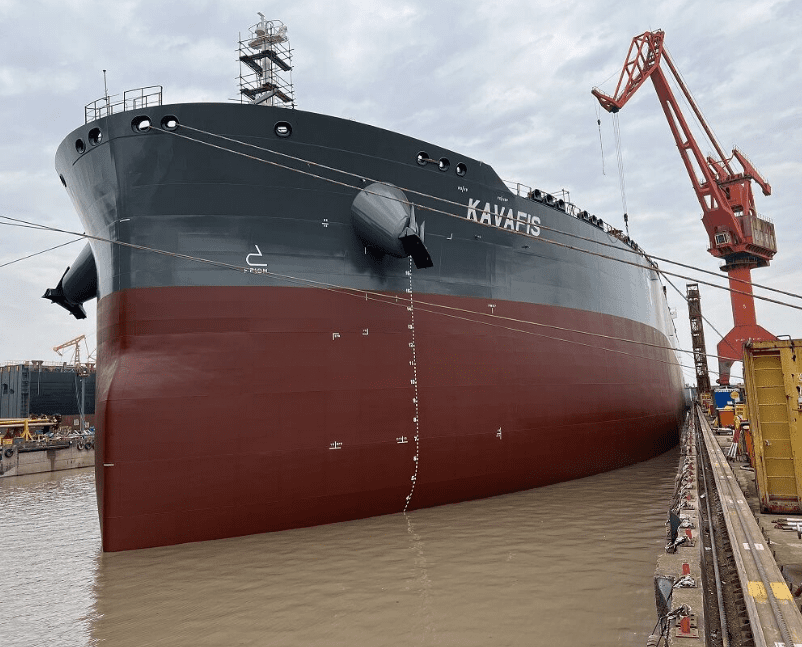Greece remains the global leader in shipping, as the latest annual report by the Union of Greek Shipowners (UGS) shows that Greek shipowners control the highest share, 21% of the global merchant fleet in terms of dwt. During the last ten years the total capacity of the Greek merchant fleet, currently consisting of 5,520 ships, has grown by 50%.
The report notes that Greeks continue investing heavily in new-build ships and equipment, with 241 ships on order in April 2023, corresponding to 19 million dwt.
This represents a significant increase of 40% compared to the previous year’s orderbook (173 ships), attesting to the Greek shipping sector being the frontrunner also in fleet renewal.
It is estimated that more than 40% of oil tankers and almost one out of 6 LNG carriers being built today will be delivered to Greek shipowners. Moreover, the average age of the Greek-owned fleet, around 10 years, is lower than the global average, almost 11 years.
For the most strategic ship type categories, Greek shipowners control more than 70% of the total capacity of the EU-controlled fleet, according to the data in the annual report of the Union of Greek Shipowners (UGS).
In particular, Greek shipowners control 80% of the EU-controlled bulk carriers, 73% of the EU-controlled oil tankers, 85% of the EU controlled LNG carriers and 17% of the EU controlled containerships. More than 1/3 of the Greek-owned fleet flies an EU Member State flag, thereby further supporting the sector’s added value to the EU economy.
On a national level, Greek shipping remains a strategic advantage, which is particularly important to the country’s economy.
The overall impact of maritime transport on the Greek economy reaches 7% of the Gross Domestic Product (GDP), while it creates directly and indirectly hundreds of thousands of jobs in Greece. More importantly, shipping provides large monetary inflows to the Greek economy.
Shipping also offers significant inflows to the Greek economy: In 2022 inflows to the Greek Balance of Payments by sea transport surpassed €21 billion, the largest contribution recorded in the last 20 years. Very importantly, for the period 2012-2022 shipping contributed €148 billion in inflows to the Greek economy, highlighting the pivotal role of the sector for Greece.
Greek shipping is the main facilitator of the transport of essential goods accounting for (in terms of dwt) 31.27% of the world oil tanker fleet, 25.32% of the world bulk carriers, 22.65% of liquefied natural gas (LNG) carriers, 15.79% of chemical and product tankers, 11.46% of liquified petroleum gas (LPG) carriers and 8.92% of the world containerships.
“In this ever-changing environment, Greek shipping, with its long-standing know-how and collective dynamism, continues to successfully rise to the current challenges, maintaining our leading role, both in quality tonnage and market share, thus continuing to offer reliable, high-quality services to the international market,” said UGS President Melina Travlos.



